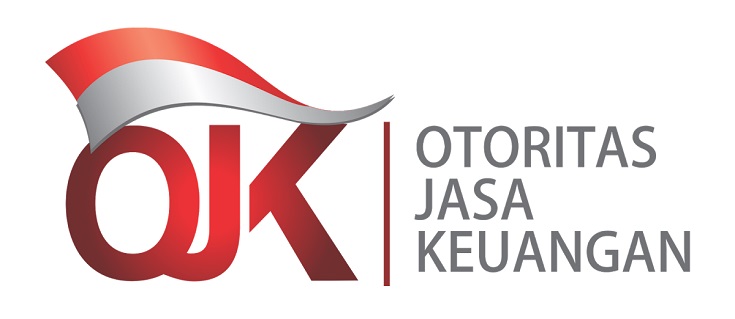In the intricate landscape of Indonesia’s financial services sector, the Financial Services Authority, known as OJK (Otoritas Jasa Keuangan), stands as a formidable guardian.
In this article, we delve into the depths of OJK Indonesia, exploring its duties, responsibilities, and its expansive scope of work.
What is OJK in Indonesia?
The Financial Services Authority, known as the Otoritas Jasa Keuangan (OJK) in Indonesia, was established in 2011 under the Financial Services Authority Law. This institution plays a pivotal role in supervising and regulating various financial institutions, ensuring the stability and integrity of the financial system.
The Financial Services Authority (OJK) was created with a specific mission: to promote and organize a system of regulations and supervisions integrated into the overall activities in the financial services sector. This regulatory body was instituted to ensure that Indonesia’s financial system operates in a transparent, secure, and efficient manner.
Also read: What is Fintech: Meaning, Advantages, Types, Examples
What are the Duties and Responsibilities of OJK?


Here are some of OJK’s duties and responsibilities:
Regulating and Supervising
OJK’s primary duty is to regulate and supervise various sectors within the financial services industry. These sectors encompass banking, capital markets, and non-bank financial institutions. The aim is to maintain fair and ethical practices while fostering growth and stability.
Licensing and Permits
Issuing licenses and permits to financial services institutions is another crucial function of OJK. This ensures that only credible and trustworthy entities are allowed to operate in the sector, bolstering investor and consumer confidence.
Also read: Types of Business Licenses in Indonesia
Inspections and Enforcement
OJK conducts both on-site and off-site inspections of financial services institutions. This helps identify any discrepancies or violations of regulations. When violations are detected, OJK takes corrective and enforcement actions to maintain the sector’s integrity.
Promoting Consumer Education and Protection
To empower consumers, OJK actively promotes consumer education and protection. By educating individuals about financial matters and safeguarding their interests, OJK contributes to a more informed and protected society.
Financial Literacy Programs
Financial literacy is a cornerstone of OJK’s responsibilities. The institution develops and implements financial literacy programs to enhance the financial knowledge and skills of individuals and businesses alike.
Research and Development
OJK continuously conducts research on the financial services sector. This research serves as a foundation for informed decision-making and policy development, ensuring the sector’s growth and stability.
Promoting Sector Growth
Beyond regulation, OJK plays a pivotal role in promoting the development of the financial services sector. This includes facilitating innovation and the introduction of new financial products and services.
Scope of Work and Jurisdiction
Below is the scope of work for OJK:
Banking
OJK’s jurisdiction extends to all types of banks in Indonesia, encompassing commercial banks, rural banks, sharia banks, and foreign banks operating within the country’s borders. This comprehensive oversight ensures the health and stability of the banking sector.
Capital Markets
The capital markets are a vital component of Indonesia’s financial ecosystem. OJK supervises and regulates the stock exchange, clearing houses, central securities depositories, mutual funds, securities companies, and investment consultants.
Non-Bank Financial Institutions
In addition to banks and capital market participants, OJK also oversees non-bank financial institutions. This category includes insurance companies, pension funds, venture capital companies, and other financial entities that are not categorized as banks or capital market participants.
Scope of Regulations


OJK wields the authority to issue regulations across various aspects of the financial services sector:
Licensing and Permits
OJK sets the standards for licensing and permits, ensuring that only qualified institutions are allowed to operate in the sector.
Prudential Requirements
Prudential requirements are vital for the financial sector’s stability. OJK establishes and enforces these requirements to safeguard the interests of all stakeholders.
Conduct of Business Rules
Ethical conduct within the financial sector is paramount. OJK sets the conduct of business rules that dictate fair and ethical practices.
Consumer Protection
Consumer protection is a priority for OJK. Regulations are put in place to ensure consumers are treated fairly and transparently.
Market Surveillance
OJK actively monitors the financial markets to detect and prevent any fraudulent or unethical activities.
Enforcement
When violations occur, OJK has the authority to take enforcement actions, ensuring that regulations are followed.
Also read: Understanding Indonesia Business Law: A Comprehensive Guide
How to Get a License or Permit from OJK?
To get an Indonesian license and permit from OJK, you must first submit an application to the OJK. The application process and requirements vary depending on the type of license/permit you are seeking. Nevertheless, there exist certain general steps that all applicants must adhere to:
Review the relevant OJK regulations
The OJK website contains a list of all OJK regulations, as well as information on how to apply for different types of licenses/permits.
Prepare the required documentation
The required documentation will vary depending on the type of license/permit you are seeking. However, some common requirements include a business plan, financial statements, and information on the key personnel of your company.
Submit your application to the OJK
You can submit your application online or by mail.
Pay the application fee
The application fee varies depending on the type of license/permit you are seeking.
Wait for the OJK’s decision
The OJK will review your application and make a decision on whether or not to grant you a license/permit.
If your application is approved, you will be issued a license/permit by the OJK
You will then need to comply with all of the OJK’s regulations in order to maintain your license/permit.
In the intricate tapestry of the Indonesian financial system, OJK is a vital institution. It stands as a guardian of stability, consumer protection, and ethical practices within the financial services sector. OJK’s multifaceted duties, ranging from regulation and supervision to promoting innovation and education, ensure that Indonesia’s financial system continues to thrive and serve the nation’s interests.
If you have any questions about the application process or the requirements for a specific type of license/permit and business license in Indonesia, you can contact the OJK directly for assistance or simply chat with our experts.



